Learning Maritime English for Employment
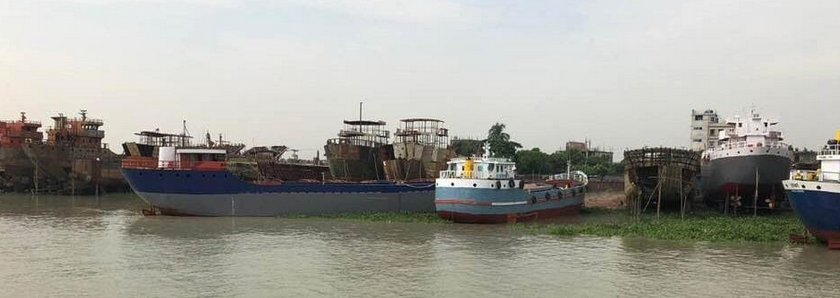
The maritime background of Bangladesh is very old. The country has the longest sea beach in the world, Cox’s Bazar, and the centuries old Chittagong Port in addition to two other ports. It also has a number of maritime universities and other places of learning.
Moreover, much of the trade of Bangladesh is carried out by sea and along the great waterways of Bangladesh. In fact, Bangladesh has great maritime possibilities in the near future, especially since maritime boundary disputes with Myanmar were settled in 2012, and with India in 2014.
Nowadays, Bangladesh controls about 1,18,813 square kilometers of maritime area in the Bay of Bengal, which offers many possibilities to use living and non-living resources, including gas fields. All of these resources can help Bangladesh’s national economy, which will also provide a number of job opportunities for maritime graduates. However, to be successful in getting these jobs, graduates need a maritime education as well as Maritime English (ME) education, so ME is a key skill that graduates and students of maritime studies need to develop.
Because learning and being able to speak ME is necessary for their future employment, we need to think about what we understand by the term ‘Maritime English’. ME is the language used at sea or in port by seafarers (people who work at sea), cruise ship staff and offshore workers (other people who work away from land). English may be used on board a ship, from ship to ship, or from ship to shore. In fact, ME is a simplified form of English which has a great many special features, in particular the sounds, words and grammar of the English language as these relate to the maritime situations in which English is used.
The purpose of learning and teaching ME is to make cadets and graduates more efficient as they work in international settings and with other workers who speak many different languages. It is often seen that a failure to communicate in the right way often leads to accidents at sea. Therefore, seafarers have to be very familiar with Standard Marine Communication Phrases (SMCP).These SMCP have been developed by the International Maritime Organisation (IMO),which is the organization that is responsible for the most important safety-related fields of spoken shore-to-ship, ship-to-shore, ship-to-ship and on-board communications. The language used in these communications needs to be simple and completely clear, so there is no confusion and no mistakes are made.
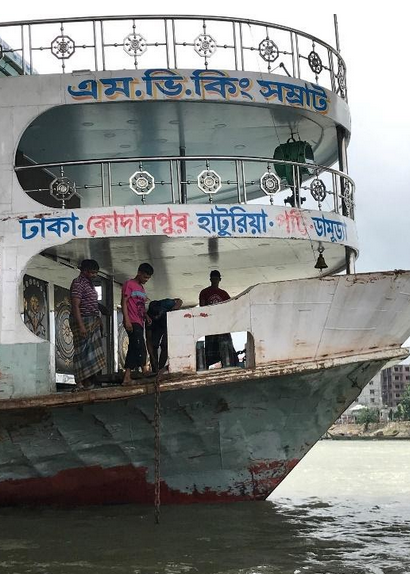
Maritime English has a number of branches. These branches include…
-
‘English for Navigation and Maritime Communications’
-
‘English for Maritime Commerce’
-
‘English for Maritime Law’
-
‘English for Marine Engineering’ and
-
‘English for Ship-building’
However, in each of these branches, the main purpose of using ME is to make life safer at sea. Using ME helps people to use the language in the same way, whether at sea or in port, everywhere around the world, so that they understand each other easily, correctly and fully. Knowing this, one may ask how ME differs from the general English that is used by most English speakers every day. This can be explained in the following way…
Maritime English is a part of the field known as English for Specific Purposes (ESP). In ESP, each subject area of study, or each part of working and professional life has its own special words and sentence patterns that are used by the people who work and function within that area. For example, in Maritime English the word ‘bulkheads’ means ‘walls’. Again, when we say a ship is making ‘headway’ it means the ship is moving ‘forwards’, while ‘sternway’ refers to the ‘backward’ movement of a ship.
In general English we can use a sentence like ‘May I enter the fairway?’(meaning the area along which ships can move). However, in Maritime English the right way to say this is…
‘QUESTION. Do I have permission to enter the fairway?’
From this example we can see, first of all, the purpose of the sentence must be given, so the word ‘Question’ is stated. After that, the message itself is delivered, ‘Do I have permission to enter the fairway?’
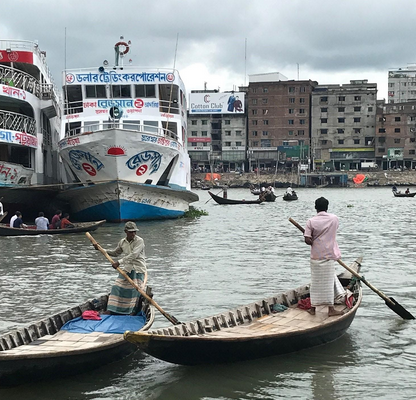
Another example might be a distress or emergency message. This kind of message, which is asking for help right away, begins with the expression ‘Mayday’ and is used when someone’s life, or a ship, is in danger. For instance…
‘MAYDAY. I am in danger of capsizing (meaning sinking).’
Another kind of distress message begins with ‘Pan-Pan,’ like this…
‘PAN-PAN. I am manoeuvring (or moving the ship into position) with difficulty.’
A request message begins with the word ‘Request’. For example…
‘REQUEST. I require medical assistance.’
Thus, we can see, it is important for maritime students and cadets to learn Maritime English well, but the question is, how can they learn ME?
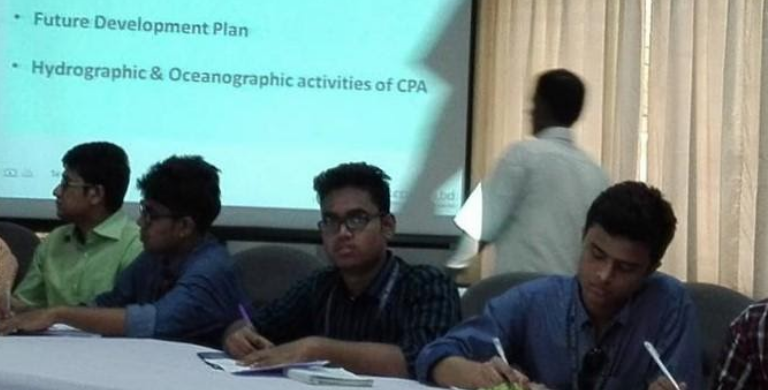
Because Maritime English comes from general English, having a good command of general English is needed before learning ME. Fortunately, there is a large number of resources online that can help students to master Maritime English. Among them, ‘SeaTalk’ http://www.seatalk.pro/ is a very useful website, containing free materials for both maritime students and teachers. Besides this, students can also visit the website of the International Maritime Organization (IMO) http://www.imo.org to get the latest maritime news and information.
Having a strong knowledge of Maritime English and keeping up to date with the latest maritime news will certainly prepare maritime students and cadets well for the vast number of working opportunities both at home and abroad.
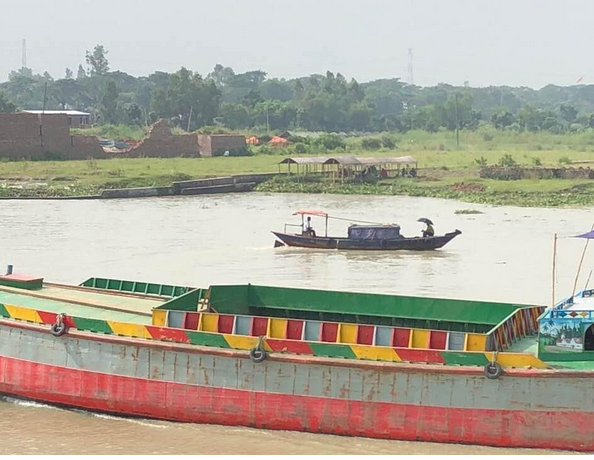
__________________________________________________
Learning Activities
Vocabulary Lists: learn all of the words from the following two lists…
-
High Frequency Words from the 2nd 1000 General Service Word List
| abroad | confusion | grammar | request | staff |
| accidents | education | international | sentence | |
| bay | engineering | message | sinking | |
| centuries | forwards | patterns | skill |
-
High Frequency Words from the Academic Word List
| area | economy | resources |
| assistance | job | require |
| commerce | medical | specific |
| communicate | professional |
Do you know the meaning of the words and expressions below? These are not high frequency, or common, words in English, so only learn these words and expressions if you already know ALL of the words in the two lists above, very well, and/or if you are studying Maritime English.
beach / boundary disputes / cadets / cruise ship / distress / emergency / fairway / graduates
in the near future / kilometres / maritime / navigation / on board / port
to be in danger/someone’s life is in danger / to be responsible for / to capsize
to carry out (something)/to be carried out (by) / to keep up to date (with something)
to make a mistake / to manoeuvre / to relate to (something or someone) / to think about (something)

Comprehension Questions
-
From your reading of the passage, can you describe the characteristics of maritime English?
-
Why does Bangladesh have good maritime prospects in near future?
-
How is general English different from Maritime English?
-
Why does the author suggest getting the latest maritime news from websites?
-
What are some standard Marine communication phrases? What do they mean?
Writing
Write a summary of the reading passage in your own words. Your summary should not be more than one third of the passage in length. Try to use as many words from the two high frequency vocabulary lists above, as you can. Do not use more than two list words in the same sentence. Share your writing with another student and comment on the way the target vocabulary was used. Think about spelling, meaning, the form of the target list word (noun, verb etc.) and whether you think the word was used in a natural way (in this case, consider 'collocations' (or 'word patterns').)